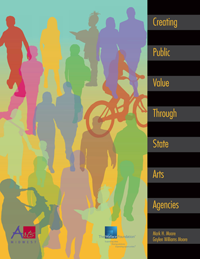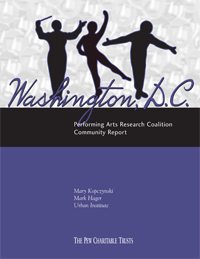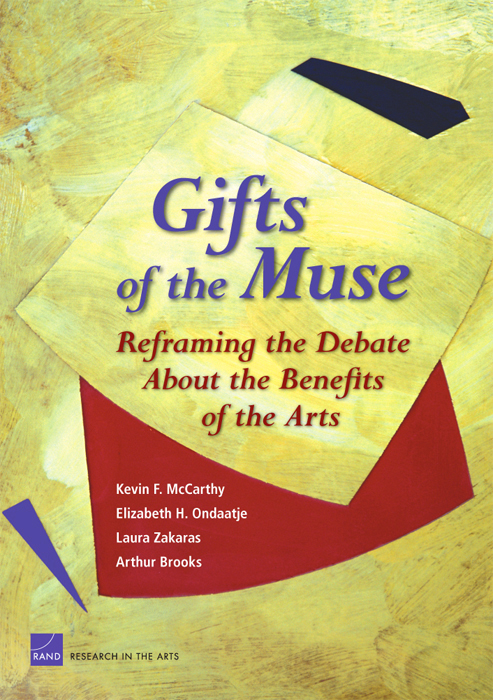Public Policy & Advocacy
Grantmakers in the Arts holds public policy and advocacy as one of its core funding focus areas and believes one of the most important roles we can serve in benefitting our members and the arts grantmaking community – maximizing the impact our sector can have toward increasing access to the arts and realizing racial justice through the arts – comes by way of our public policy and advocacy work. In GIA’s vision for the future, foundations have shifted their foci to increasingly include advocacy and public sector policy and practice.
As part of realizing this vision, we provide programs to teach our members about advocacy and lobbying, the difference between the two, and how grantmakers can support both. GIA advocates for lifelong learning through the arts from early childhood through K-12 and into senior years. Knowing that the arts and arts education cannot be provided without artists, we necessarily advocate for economic justice for artists and other workers.
We are committed to invigorate funding and support for arts education within federal policy, and defend that every resident has access to the arts as part of well-rounded, life-long education. Over the past several years, raising the visibility of the arts in the Elementary and Secondary Education Act (ESEA) in its legislative form. GIA and Penn Hill Group continue these advocacy efforts around the Every Student Succeeds Act (ESSA), guiding GIA members and their grantees in advocating for new or expanded arts programs at their local schools and districts. Organized since 2012, GIA’s Arts Education Funders Coalition (AEFC) has worked to address identified needs in comprehensive arts education and to strengthen communication and networking among arts education funders.
The AEFC includes members from Americans for the Arts, Arts Education Partnership, Center for Cultural Innovation, The George Gund Foundation, The Heinz Endowments, The William & Flora Hewlett Foundation, and Wallace Foundation, among others. Advised by a committee of Coalition members, GIA engaged the services of Washington, D.C.-based Penn Hill Group, a firm with education policy expertise and experience working with diverse education groups to research, develop, and promote educational policy strategies.
Most recently, GIA worked with Representative Suzanne Bonamici (D-OR) on the development of the Arts Education for All Act, the broadest arts education policy bill ever introduced in Congress. In Spring 2021, GIA influenced the U.S. Department of Education to highlight the importance of equitable access to arts and culture when determining how to reopen schools. Additionally, GIA emphasized the need to make explicit how this access was racialized prior to the pandemic. Addressing this inequity was essential to effective reopening and remains essential to the adequate provision of comprehensive, well-rounded education.
GIA advocates and lobbies for lifelong learning. GIA is delighted that, in 2020, Congress passed the Supporting Older Americans Act including our recommendations that the Administration on Aging include the arts in the issues to be identified and addressed and be included among supportive services for older Americans.
GIA continues to advocate and lobby for economic justice for workers, including artists. GIA has successfully lobbied to include arts-related provisions in the Child Care for Working Families Act, which proposes to better help low-income families pay for childcare and expand high-quality state preschool options. GIA advocated for AmeriCorps to make national volunteer service more accessible by offering an increase in living allowances. We have also called for arts grantmakers to advocate for portable benefits for workers and has released a call for our stakeholders to endorse the Portable Benefits for Independent Workers Pilot Program Act. GIA advocates for changing public policies to allow people with disabilities, including artists, to secure greater resources for their work without being rendered ineligible for public supports and is endorsing the re-introduced SSI Savings Penalty Elimination Act. The bill raises the limits on assets people with disabilities can hold before being disqualified from public benefits while also indexing those limits to inflation.
GIA is realizing our vision is through the GIA Cultural Policy Learning Series and Action Lab, which focuses on such issues as racial equity & transformational practice in the public sector, translating between sectors and planning toward action.
GIA is eager to continue informing the field’s support for advocacy, to advocate for national policies that enhance lifelong access to the transformative power of arts and culture that create economic justice for artists and other workers.
Like most Americans, you may be baffled by the continued optimism of our President and his advisors about the economy. Every month more people are laid off, unemployment mounts, and thousands of small businesses, including those headed by artists, collapse. More people lose their homes to foreclosure. Economists are beginning to murmur that deepening unemployment could extend the recession and that the federal debt-financed stimulus program is not enough.
Read More...Brooklyn, NY - National Endowment for the Arts Chairman Rocco Landesman delivered a keynote address today to close the 2009 national Grantmakers in the Arts conference: Navigating the Art of Change.
In his remarks, Chairman Landesman laid out the guiding principle that will inform his work at the agency, which can be summed up in two words: "Art works." Chairman Landesman explained that he means this in three ways:
2009, 102 pages, Common Core, 1016 16th Street NW, 7th Floor, Washington, D.C., 20036, (202) 223-1854 http://www.commoncore.org
Download:
Read More...On May 12th, more than 60 artists and creative organizers engaged in civic participation, community development, education, social justice activism, and philanthropy came together for a White House briefing on Art, Community, Social Justice, National Recovery.
Read More...Remix: Making Art and Commerce Thrive in the Hybrid Economy
Penguin Press, 2008, 352 pages. ISBN-10: 1594201722
2004, 58 pages, Performing Arts Research Coalition, 1156 15th Street NW, Suite 810, Washington, D.C., 20005
Download:
Read More...Ralph Smith, the 2007 Conference Chairman, issued a challenge in his welcome message – “that all who attend will leave with renewed energy, capacity and resolve to make a positive contribution toward meeting the challenges of our time.”
Read More...This brief presents research findings as well as policy recommendations arising from a study of the No Child Left Behind Act and its implications for immigrant children and English language learners (ELLs). Analyses are based on nationally-representative data from the Schools and Staffing Survey and detailed case studies of selected elementary schools and school districts serving high concentrations of ELL students. Results reveal an extraordinary degree of concentration of ELL students in a few schools that tend to be large, urban and serve a predominantly minority student population.
Read More...
At a time when public support of the arts faces a range of challenges, state arts agencies could use a framework to help them better serve the arts community and engage more people in the arts -- thereby elevating these agencies' public value.
Read More...


